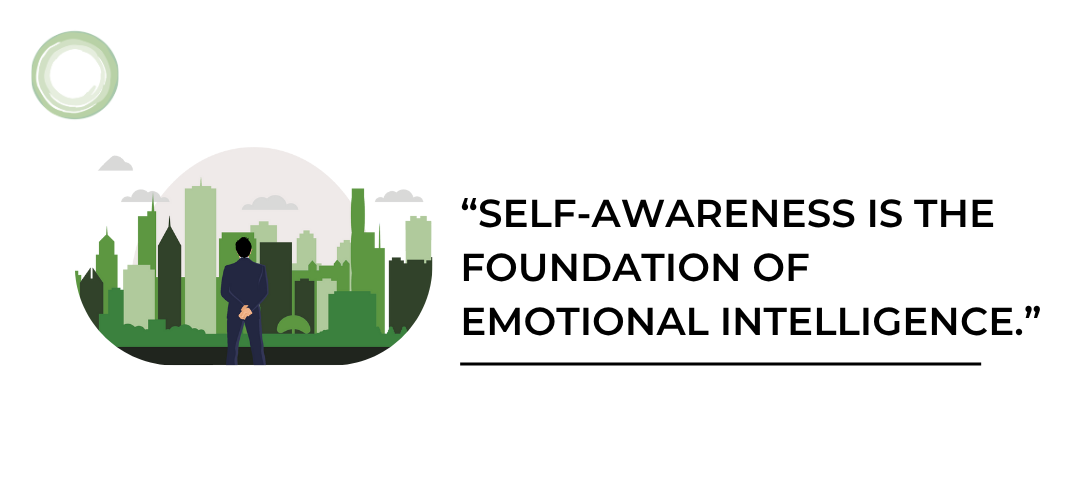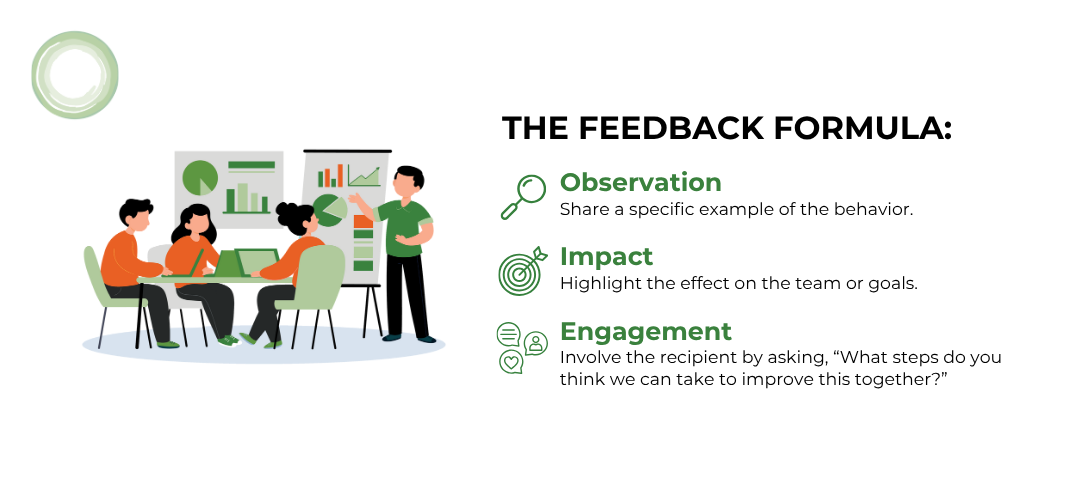Discover how understanding yourself can sharpen decision-making, foster stronger teams, and elevate your leadership impact.
Leadership isn’t just about achieving results; it’s about how you show up and the ripple effect you create for your team. Self-awareness is the key to understanding how your actions, emotions, and decisions influence others—and it’s a leadership advantage you can’t afford to overlook.
Executives with high self-awareness lead organizations that outperform their competitors. Research from Korn Ferry highlights a direct connection between self-aware leadership and profitability. But the benefits don’t stop there—leaders who understand their patterns, motivations, and blind spots foster teams that are innovative, adaptable, and deeply engaged.
Let’s explore five ways self-awareness strengthens your leadership, paired with actionable strategies to help you apply these insights starting today.
The Advantage of Self-Awareness for Leaders
Self-awareness is the foundation of emotional intelligence. It helps leaders communicate with empathy, navigate conflict effectively, and inspire trust in others.

Self-aware leaders anticipate their reactions and make decisions with clarity and confidence. Think about a time when you faced a tough decision. Did you pause to consider how your reactive tendencies might influence your choice?
A Harvard Business Review study found that emotionally intelligent leaders are more likely to lead high-performing teams. For fast-moving industries — looking at you, private equity, healthcare, and tech — emotional intelligence is indispensable for navigating complexity and uncertainty.
1. How Self-Awareness Fuels Smarter Leadership Decisions
Every leader has biases—whether it’s a tendency to overanalyze, favor caution, or take unnecessary risks. Self-awareness helps you spot these patterns and make decisions that serve the bigger picture, not just your instincts.
For instance, a private equity partner I work with recognized their inclination to play it safe during negotiations. By involving team members with a more risk-tolerant approach, they created a strategy that captured bold opportunities while safeguarding against potential pitfalls.
Strategy to Try: Conduct a “Pre-Mortem Analysis” before making major decisions. Assume the decision has failed and trace back to identify what might have gone wrong. This process challenges assumptions, encourages diverse viewpoints, and strengthens your strategic thinking in advance.
2. Building Emotional Intelligence
Leaders with high emotional intelligence don’t just understand their emotions; they know how to regulate them to respond effectively to others. Self-awareness amplifies this ability.
A healthcare executive who notices their stress triggers—like withdrawing in high-pressure moments—can develop intentional communication practices. What team wouldn’t respond well to that? Use self-awareness to keep your team aligned and foster trust.
Try This: At the start of each day, take five minutes to check in with yourself. Ask, “How am I feeling, and how might that influence my interactions today? What state of being do I need to shift into to bring my best leadership qualities to the forefront?”
3. Using Feedback to Foster Growth
Feedback is an essential driver of growth, but delivering it effectively—and receiving it with an open mind—requires self-awareness. Leaders who understand their emotional triggers are better equipped to approach feedback with curiosity rather than defensiveness, creating a culture where openness thrives.
Early in my leadership journey, I realized that I bristled when my ideas were questioned. By reframing feedback as an opportunity for learning, I not only shifted my mindset but also encouraged my team to be more candid, leading to stronger outcomes.
Framework to Use:
When offering feedback, the “Feedback Formula” keeps conversations constructive:
- Observation: Share a specific example of the behavior.
- Impact: Highlight the effect on the team or goals.
- Engagement: Involve the recipient by asking, “What steps do you think we can take to improve this together?”

4. Strengthening Your Personal Influence for Team Empowerment
Your team’s behavior often reflects your own—your approach to conflict, decision-making, or communication. With self-awareness, you can recognize patterns in your leadership that may unintentionally influence team dynamics and make intentional adjustments.
For instance, a technology leader who notices their tendency toward perfectionism might focus on delegating key responsibilities. This shift empowers their team to take ownership and fosters creativity and innovation.
Take Action:
The Enneagram is a powerful tool for understanding your strengths and stressors. Explore the Enneagram Applied course to gain deep insights into your leadership style and overcome the hidden obstacles holding you back.
5. Adapting to Crisis with Confidence
Crisis situations test every leader’s resilience. Self-aware leaders rise to the challenge because they understand their stress responses and can adapt in the moment.
Consider this: During a critical system failure, an executive who recognizes their tendency to hyper-focus on details might consciously step back to assess the broader picture. This measured approach prevents unnecessary chaos and enables effective, clear-headed problem-solving.
Your Crisis Protocol:
Prepare for high-pressure moments by identifying patterns that derail you—whether it’s overanalyzing or acting on impulse. Develop specific strategies to counteract these tendencies, like tapping into the power of music to shift your mental state back to grounded and decisive.
Applying the Enneagram for Leadership Growth
You might be thinking, “How do I build self-awareness?”
The Enneagram is one of the most powerful tools to begin this journey. A comprehensive program like the Enneagram Applied not only provides the most accurate and actionable assessment and 20+ page report on the market, but it helps you apply the “so what” behind it all to become a better leader. Knowing your Enneagram Type is just the first step, but leveraging that to uncover your specific path of growth to improve your decision making and build resilience in the face of change and uncertainty is the real power behind the tool.
Examples include:
- Type 1 (The Principled Reformer): Guided by a strong sense of integrity but may struggle with being overly critical.
- Type 3 (The Productive Performer): Motivated by a need to outshine others but at risk of harming relationships.
- Type 8 (The Powerful Challenger): Confident and decisive yet must balance assertiveness with collaboration.
Understanding your Enneagram Type and how it engages with others helps you identify patterns that shape your leadership.
Practical Steps to Develop Self-Awareness
Self-awareness is a skill you develop with practice, not a trait you’re born with. Building this foundation requires consistent habits and moments of reflection.
Start here:
Daily Reflection: Dedicate five minutes at the end of each day to review key decisions or interactions. Ask yourself, “What worked well today? What could I have approached differently?”
Create a Leader’s Playlist: Music has the power to influence your mindset and energy. Curate a playlist that uplifts and grounds you—songs that help you focus before a critical meeting or reset after a tough day. Use it intentionally to align your state of mind with your leadership goals. Learn how here.
Mindfulness Practices: Incorporate simple mindfulness exercises into your routine to enhance focus and emotional regulation. Apps like Calm or Headspace can help you build this habit without overwhelm.
The journey to self-awareness never ends. But with the right tools — like the Enneagram – you can track your progress and adapt to new challenges.
Collaborate for Growth: Join a peer group of leaders with similar challenges. Discussing experiences and strategies fosters fresh perspectives and actionable insights.
Elevating Your Leadership Journey
When you lead with self-awareness and emotional intelligence, you elevate not only your decision-making but also the performance and resilience of the teams you guide. By committing to this growth, you become the leader your organization needs to thrive in an ever-changing landscape.
Discover What’s Possible: Meritage Leadership’s Enneagram Applied program is designed to help you uncover blind spots, leverage your strengths, and lead with greater impact. Ready to take the next step in unlocking your full leadership potential? Let’s begin your journey today.


